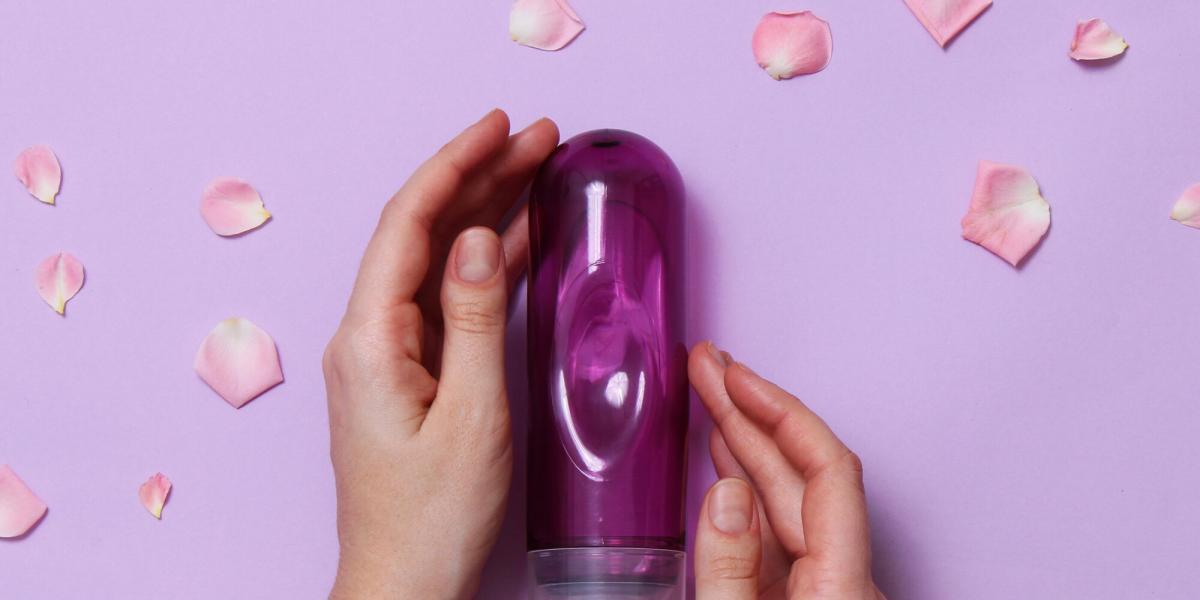Whether it’s your first time using lube, or you’re a seasoned lube user and you think that Vaseline would be a more cost effective alternative, you’re probably wondering “is Vaseline safe to use as lube?”.
Vaseline is a staple of many bathroom cabinets and nightstands. It has many, many uses, from a remedy for chapped lips to a leather polish for shoes – it can even be used to prevent razors from rusting by applying a little bit of the product to the dry blades between shaves. However, when it comes to using Vaseline as a personal lubricant for sex, this might not be such a good idea. We explain why in this article.
What is Vaseline made of and who invented it?
Vaseline is a brand of petroleum jelly. There are many other petroleum jelly products available on the market that have been created by other brands, but Vaseline has become so synonymous with this translucent jelly that the brand name has become a generic term for any similar product.
Records show that Vaseline was first patented in 1872 by chemist Robert Chesebrough, and was manufactured by the Chesebrough Manufacturing Company until 1987, when the company was purchased by Unilever.
Although there is very little written information from reputable sources about the history of Vaseline and petroleum jelly, some texts, like Indian Givers: How Native Americans Transformed the World suggest that Native Americans first discovered petroleum jelly and used the substance for protecting and healing the skin.
Petroleum jelly itself is made from a filtered blend of mineral oils and waxes, which are a product of crude oil harvesting. Vaseline states that their product is non-irritating, hypoallergenic and non-comedogenic (meaning it won’t clog pores), so it is generally safe to use on the skin as directed.
Is Vaseline vegan?
This is a bit more complicated, as petroleum and related substances are made from oil, which is formed from the remains of marine plants and animals that lived on this planet millions of years ago.
However, it would be incredibly difficult to avoid using anything that contains oil or petrochemicals in today’s world. Therefore, most vegans accept Vaseline to be a vegan product, as it does not contain ingredients from animals that have been recently killed for cosmetic production.
The pros and cons of using Vaseline as lube
Vaseline was never intended for use as a lube by its manufacturers; however, that hasn’t stopped people from using it in this way. If you are considering whether to use Vaseline as a personal lubricant for sex, here are some pros and cons to weigh up.
Pros:
- It’s cheaper than many of the leading brand purpose-made lubricants on the market.
- It lasts a long time and doesn’t dry up as quickly as water-based lubricants would.
- It can be used in water, such as in the bath or shower.
- It isn’t as effective as a lube as you might think. Vaseline is very thick and can be sticky, which means that it may not create the slippery texture you desire.
- While we listed its ability to last long on the skin as a ‘pro’, this can also be a negative, as this means it can be difficult to clean from the body after use. It may even take days for your body to expel the Vaseline if used internally.
- Vaseline can easily harbour bacteria, which means if you have a vagina, this can also increase your chances of getting a yeast infection or bacterial vaginosis due to the bacteria affecting your vagina’s pH balance.
- It’s messy. Vaseline can stain your bed sheets and clothing, making them appear greasy. This is very difficult to clean, so if you are going to use Vaseline as a lube, make sure to prepare appropriately by laying down towels, etc.
- The oils used in Vaseline have been known to weaken latex, which means that using it as a lube can damage latex condoms, increasing the risk of STIs and pregnancy.
What are the different types of lube?
There are many different types of lube, and which one you decide to use is usually based on personal preference. The three main types of lube are:
- Silicone-based
- Water-based
- Oil-based
Silicone-based lubricants are a preference of many as they are very slippery and don’t dry out easily. These lubes are long-lasting and can be used in water; however, they can damage sex toys that are made from silicone, and they may cause skin irritations for those with allergies.
Water-based lubricants are slightly less slippery than silicone-based lubes, and may dry out faster. However, they are easy to wash off, are unlikely to stain sheets or clothing, and can be used with all types of sex toys and condoms. Win!
Oil-based lubricants may be purpose-made or can be a multi-purpose oil such as coconut, olive or sweet almond oil. When using any oil as a lubricant, check that there are no irritating ingredients that have been added into the product. If the small print reads ‘for external use only’, you shouldn’t use it as a lube.
Oils are the longest lasting of the three types of lube, with the added benefit of having the most slippery texture. However, oil can increase the risk of yeast infections and bacterial vaginosis, and can break down latex condoms, making them less effective.







